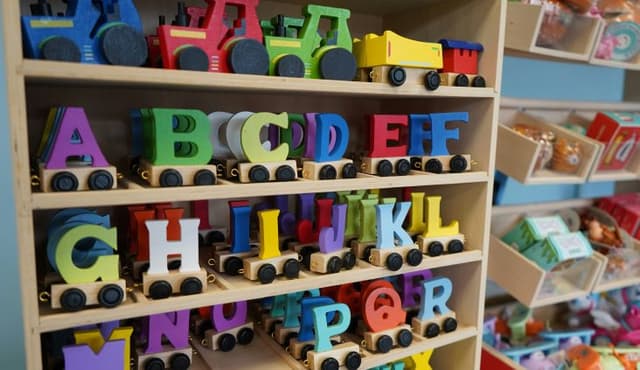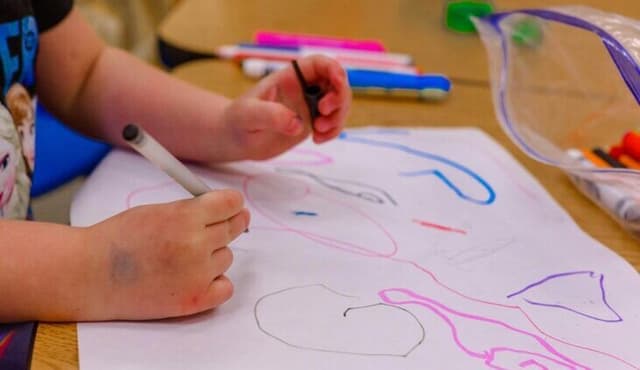General News
Intergenerational care a boon on both ends of life’s journey, study finds

Freya Lucas
Mar 13, 2019
Save
Research into the impact of co locating an early childhood education and care (ECEC) service alongside an aged care facility has been published this week, exploring the impact of residents of the aged care service interacting with children on a daily basis.
The Apples and Honey Nursery service, in South London, England, is co located with Nightingale House, a aged care home for the local Jewish community. Apples and Honey opened in 2017, and, since opening, children have engaged with residents of the aged care facility, participating daily in activities such as exercise classes, drama, baking, literacy and numeracy.Researcher Dr Ali Somers found that the residents of Nightingale House has an improved sense of self-worth, increased cognitive stimulation and increased physical movement through their engagement with the children, as well as a “sense of relief” by being able to provide care for children, rather than being the recipient of care as a resident.
Dr Somers noted that being the object of care prior to engaging with children had led residents of Nightingale House to feel dis-empowered and passive, exacerbating a sense of loneliness and isolation.
The aged care provider responsible for the management of both Nightingale House and Apples and Honey is Nightingale Hammerson, with Helen Simmons, CEO, saying to Day Nurseries that “The activities with the children distract the residents from their everyday aches and pains and give them a sense of purpose. Many attend on a regular basis and have special relationships with individual children which builds a real bond between them. We have some residents for whom it has given a whole new lease of life.”
Ms Simmons said the report highlighted the tangible positive benefits of co locating programs for vulnerable populations, as well as identifying areas for future growth.
The report indicated that the benefits for the aged population in participating in the program were cumulative, with those residents who regularly socialised with the children reporting significant improvements in mental health and overall wellbeing.
“The children’s presence has had a wider impact. The feel of the care home is lighter, filled with a new range of sounds and there is a deeper sense of community between all age groups, staff, family members, volunteers and residents.” Ms Simmons told Day Nurseries.
The value of the program - stories from the report
In one baby and toddler session, a gentleman in his late 60s walked in pushing his father in a wheelchair, who was 101. The son asked what was happening in the lounge. It turned out he was down from Scotland visiting his father. He asked if they could stay and attend the intergenerational session, and explained he wasn’t sure how long his father would cope with all of the people but the son wanted to give it a try. It was his father’s first time attending.
They settled in and enjoyed themselves. The pair stayed for the whole 90 minutes and at the end of the session, the son began to gently cry. After asking what his tears were for, he explained they were for joy.
The son shared that his father had been bed bound for the past several months. He was visiting because it was expected that his father would pass away soon. The son was moved because he said while his father was mostly deaf, he had spent the past hour and a half smiling and engaged and interacting.
The son said he was so emotional because his father in that one morning session had been more himself than his son had seen in years.
He asked if photos of his father could be taken so they could be shared with his siblings who were scattered around the country. The son wanted to show the rest of the family that their father had come back to life- even if only for a short time.
He reflected that even if his father did pass away soon, he had peace by having shared this special time with him in the baby and toddler group.
Neil’s StoryBefore one literacy session, four residents were watching television and waiting for the nursery children to arrive in the lounge. There was an elderly male resident in a wheelchair, with early stages of dementia. He was holding a box of Kleenex and there was a pile of used tissues next to him on a stand. Neil* (name has been changed to protect his identity) began to explain that he had just been to see the nurse to have some blood drawn. Neil was frustrated and upset because it had been difficult to draw blood and there were bruises on his arm. He is usually relaxed, but now, he was agitated and feeling sorry for himself.
As soon as the nursery children arrived, Neil began to smile. He maintained his smile throughout the 45-minute session. Towards the end, the children were instructed to find a ‘friend’ to share a story with. One particularly energetic three-year-old boy came bounding over to Neil and asked to be his partner. The two had a lovely time together and he forgot all about his bad experience of having his blood drawn for the time being.
Tips for intergenerational activities, from the report:
- Ensure there is regular contact between the same children and residents as that has the greatest impact.
- Bring in early years educators to lead intergenerational sessions, prioritising places for those residents with dementia.
- Promote greater cross-practice learning and feedback by developing joint training between early years teachers and care, engagement, nursing, and therapy professionals.
- Encourage members of staff from different professional teams (therapy, nursing, care, engagement, and nursery) to regularly observe intergenerational sessions in order to create a reflective environment for the programme to evolve and identify the widest range of benefits for residents. Early years teachers may spot opportunities to increase cognitive stimulation in sessions physical therapy teams run and vice versa.
The report ‘The Intergenerational Programme at Nightingale House: A study into the impact on the well-being of elderly residents’ was commissioned by Berman Charitable Trust, with the executive summary available here.
Don’t miss a thing
Related topics
Affordability & Accessibility
General News
Understanding Children
Compliance
Corporate activity
Supply & Demand
Changes
Legislation
Politics
Reporting
Examples
Report Summaries
In The Field
Outside School Hours Care
Advocacy
Leadership
Marketplace
Professional development
Services
Long Day Care
Jobs News
NQF and Policy Changes
Events News
Personnel Appointments
Family Day Care
Enterprise Solutions
Products
Innovative Research
Other
Property
Preschool


















